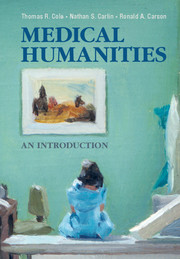Book contents
11 - Doctor-Writers
from Part II - Literature, the Arts, and Medicine
Summary
I want a doctor with a sensibility.
– Anatole BroyardAbstract
This chapter explores some of the many doctor-writers who have reflected on the practice of medicine and the qualities of a good doctor. Beginning with a discussion of the merged scientific and humanistic sensibilities of these writers, it examines the work of five prominent figures: William Carlos Williams, Richard Selzer, Kate Scannell, Danielle Ofri, and Pauline Chen. Then, with a focus on their pleas that we attend to the patient’s illness and life world as well as to the patient’s ailing body, it considers how their work helps us to think about what it means to practice purposefully.
WILLIAM CARLOS WILLIAMS
William Carlos Williams (1883–1963) is best remembered today as a revolutionary modernist who wrote poetry in the American idiom – poetry that reflected the distinctive way Americans speak the English language. He was also a prolific writer of prose – novels and essays – and a playwright. But Williams’s day job was as a doctor who practiced general medicine and pediatrics for four decades and composed stories emanating from his practice experience. Williams’s “doctor-stories” reveal a physician seeing patients during office hours in his home clinic and making house calls in and around Rutherford, New Jersey, especially among the often immigrant poor. The physician is genuinely interested in his patients (“fascinated” would not be too strong a word), intrigued by their lives, touched by their humanity, and struck by their authenticity. The narrator speaks in the story, “Ancient Gentility”: “In those days I was about the only doctor they would have on Guinea Hill. Nowadays some of the kids I delivered then may be practicing medicine in the neighborhood. But in those days I had them all. I got to love those people, they were all right. Italian peasants from the region just south of Naples, most of them, living in small jerry-built houses – doing whatever they could find to do for a living and getting by, somehow.”
- Type
- Chapter
- Information
- Medical Humanities , pp. 183 - 196Publisher: Cambridge University PressPrint publication year: 2014



